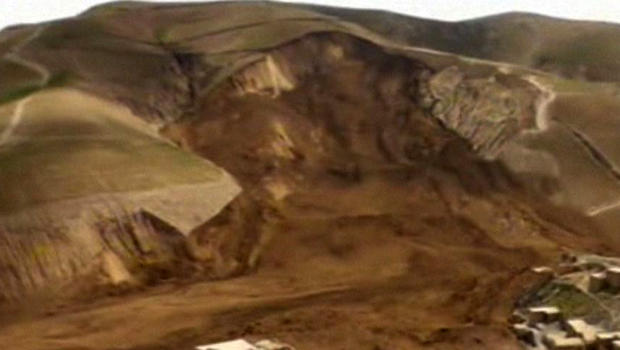Hundreds die in massive Afghan landslide
KABUL, Afghanistan -- A landslide buried a village Friday in northeastern Afghanistan, leaving at least 350 people dead and hundreds missing, said Afghan and U.N. officials.
Badakhshan province Gov. Shah Waliullah Adeeb said more than 2,000 people were missing after a hill collapsed on the village of Hobo Barik after days of heavy rain. Adeeb said the landslide buried some 300 homes in the area - about a third of all houses there.
Ari Gaitanis, a spokesman from the United Nations Assistance Mission in Afghanistan, said at least 350 people died in the landslide. He said the U.N. is working with authorities on the ground to rescue people still trapped.
Adeeb said around 1,000 families were living in the village.
The governor said rescue crews were working but didn't have enough equipment, appealing for shovels.
"It's physically impossible right now," Adeeb said. "We don't have enough shovels; we need more machinery."
He said authorities evacuated a nearby village over concerns about further landslides.
Provincial police chief Faziluddin Hayar said the landslide happened about 1 p.m. Friday.
Badakhshan province, nestled in the Hindu Kush and Pamir mountain ranges and bordering China, is one of the most remote in the country. The area has seen few attacks from insurgents following the 2001 U.S.-led invasion of Afghanistan.
Afghans living in the rugged mountains of northern Afghanistan are used to avalanches. The most deadly one in the past two years occurred in February 2010, when more than 170 people were killed at the 12,700-foot-high Salang Pass, which is the major route through the Hindu Kush mountains that connects the capital to the north.
